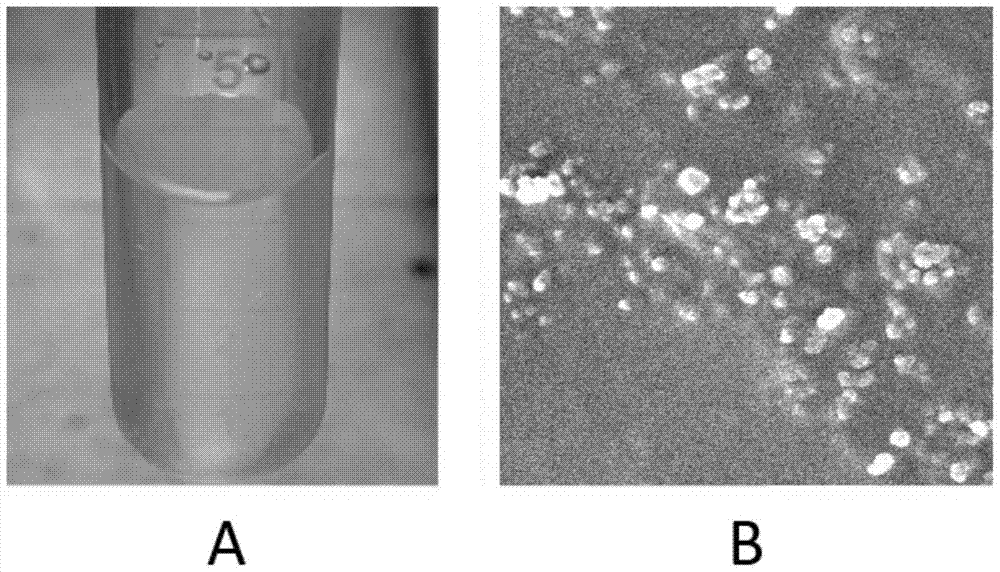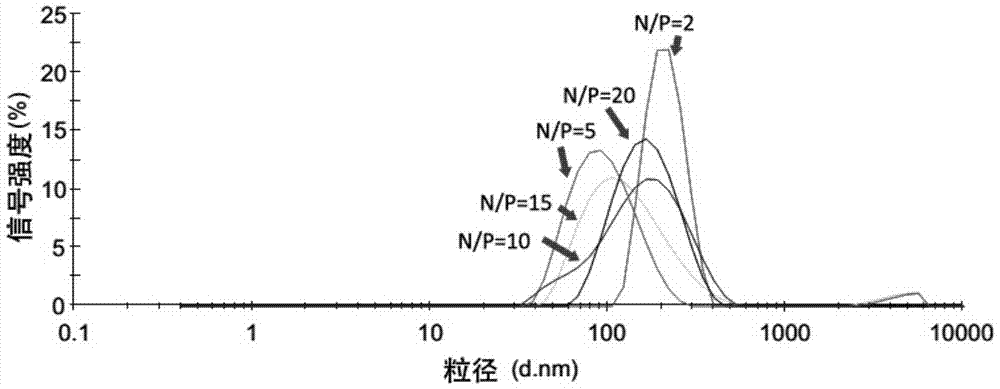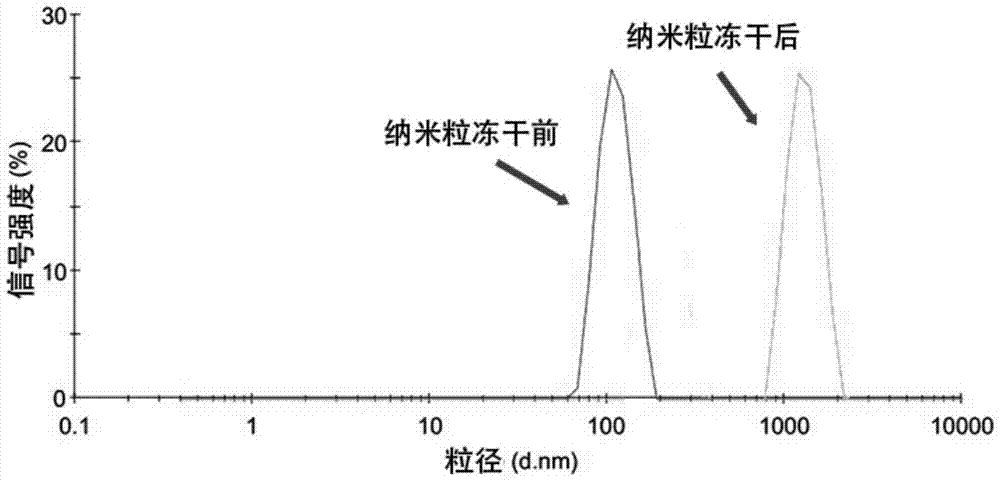An anti-tumor drug-resistant nano-delivery system encapsulating two surfactants and preparation method thereof
A drug-loaded nanotechnology, anti-tumor technology, applied in the field of medicine, can solve the problems of inability to improve the water solubility of nanoparticles, ineffective reversal of MDR, and no resistance to resistance. Medicinal effect, low cost effect
- Summary
- Abstract
- Description
- Claims
- Application Information
AI Technical Summary
Problems solved by technology
Method used
Image
Examples
Embodiment 1
[0054] Embodiment 1: Preparation of drug-loaded nanoparticles
[0055] Dissolve 1mg DTX (Shanghai Sangon Bioengineering Co., Ltd.) with 5mg F68 and 10mg L61 and 20mg PCL (US Sigmaaldrich Company) in 1ml dichloromethane, ultrasonically dissolve to make an organic phase; 50 mg emulsifier cholic acid Sodium (Shanghai Sangon Bioengineering Co., Ltd.) was dissolved in 5ml of water to make the aqueous phase. Add the organic phase to the water phase, and ultrasonicate three times with a power of 400 watts under ice bath conditions, each time for 30 seconds, with an interval of 10 seconds to make an emulsion (Ningbo Xinzhi Cell Ultrasonic Breaker), and place the emulsion on a magnetic stirrer After the organic phase was completely evaporated to dryness, an aqueous solution of nanoparticles was formed. After the nanoparticles are ultrafiltered to remove unencapsulated drugs, they are lyophilized into powders for long-term storage.
[0056] from figure 1 It can be seen that the nanop...
Embodiment 2
[0057] Example 2: Characterization of Nanoparticles
[0058] Dissolve 1mg of nanoparticles in 1ml of water, and measure the potential particle size as shown in Table 1. figure 2 As shown, it can be found that the size of the nanoparticles prepared by the present invention is about 100 nanometers, which is suitable as a drug carrier.
[0059] Table 1 Size potential of PCL nanoparticles modified by different surfactants
[0060]
[0061] The potential is negative, and the particle size distribution of nanoparticles before and after freeze-drying is analyzed as follows: image 3 , Figure 4 As shown, the particle size of PCL / L61 / F68 nanoparticles changed little before and after freeze-drying, while the particle size of PCL / L61 nanoparticles was above 1 micron after freeze-drying. This shows that without the protection of F68, the lyophilization process will cause the aggregation of nanoparticles to be unstable.
Embodiment 3
[0062] Example 3: Investigating the ability of Pluronic L61 to inhibit the efflux of drug-resistant cells
[0063] The drug-resistant ability exhibited by drug-resistant cells is mainly the efflux ability of P-gp. Drug resistance develops by efflux of chemotherapeutic drugs outside the cell. Rho123 is a classic substrate of P-gp, and the drug resistance of cells can be evaluated by measuring the concentration of Rho123 in cells.
[0064] Digest A549T cells (Nanjing Kaiji Biological Co., Ltd.), according to 5 × 10 5 pc / ml into EP tubes, 1ml per tube. 10, 20, 50, and 100 μg of Pluronic L61 were added respectively, and 5 μM rhodamine 123 (Rho123) (Sigmaaldrich Company, USA) was added and incubated for 1 hour. Centrifuge to remove the supernatant, and add PBS to resuspend and wash for three times. Add 300 μl of cell lysate (Shanghai Sangon Bioengineering Co., Ltd.), and take 100 μl to a bioluminescence detector (Promega, USA) to determine the fluorescence reading. The protein...
PUM
| Property | Measurement | Unit |
|---|---|---|
| particle diameter | aaaaa | aaaaa |
Abstract
Description
Claims
Application Information
 Login to View More
Login to View More - R&D
- Intellectual Property
- Life Sciences
- Materials
- Tech Scout
- Unparalleled Data Quality
- Higher Quality Content
- 60% Fewer Hallucinations
Browse by: Latest US Patents, China's latest patents, Technical Efficacy Thesaurus, Application Domain, Technology Topic, Popular Technical Reports.
© 2025 PatSnap. All rights reserved.Legal|Privacy policy|Modern Slavery Act Transparency Statement|Sitemap|About US| Contact US: help@patsnap.com



